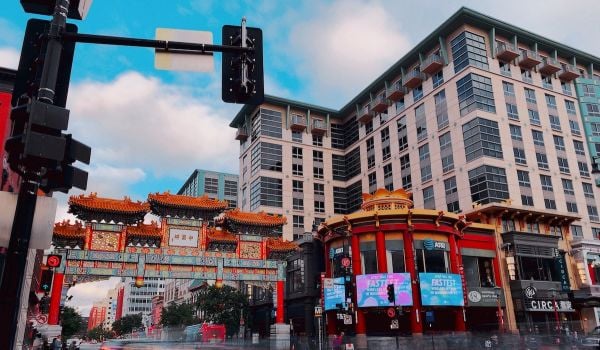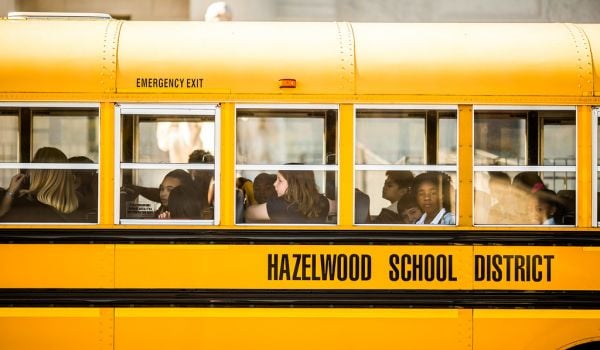“We are facing a transformational moment in the nation, where the decisions we make today to address the economic crisis will define the future of cities for generations to come.”
That’s how Philadelphia Mayor Michael Nutter began the letter he hand-delivered to Treasury Secretary Henry Paulson some 10 days ago.
The letter then went on to ask for upwards of $50 billion worth of loans to be drawn from the $700 billion Troubled Asset Relief Program authorized by Congress to bail out banks and financial institutions and set aside for what Nutter’s letter called “big cities.” The request proposed the money be used for infrastructure projects, for municipal employee pensions, and for “short-term” (year long) cash flow fixes to keep programs running.
So, what decisions were made that day that will “define the future of cities for generations to come”? If you believe the reports, no decisions.
Paulson was reported by the Associated Press and New York Times to have reacted by making this statement “The focus [of the bail out plan] is to stabilize financial institutions and strengthen the financial system, promote lending and so on.”
The implication was that the mayors’ request was denied, and the media hasn’t touched the issue since. Wrongfully, on both counts, says Mayor Nutter’s office today.
Nutter spokesman Luke Butler says the Department of the Treasury (Paulson himself was not spoken to) was “very engaged, very interested in hearing from someone who runs a big city and understands the problems they are now facing from the ground.”
“The Treasury has requested additional information,” reports Butler, “and at the moment we’re gathering that for them sometime this week.”
So why the mixed message in the media? Why no reports about the mayor’s office’s claims that the outlook for cities here is good? Why did the initial report of the story get top billing on Drudge?
Murmurs in the blogosphere suggested that Nutter’s hand-delivered letter seemed a bit too much like a political stunt to be taken completely seriously. It looked to Philadelphians to be awfully convenient that Nutter get an opportunity to point an angry finger at the federal government and the “economic crisis” itself for his city’s failings when, less than a month ago, Nutter — a mayor known for his ambitious new programs, including an Office of the Creative Economy and an Office of Sustainability — announced an unprecedented one-billion-dollar budget deficit and a subsequent series of painful and unpopular city cutbacks (the closing of city libraries, youth programs and pools among them).
The local CBS affiliate in Philadelphia seemed to spin the request in a similarly skeptical light, making Nutter’s effort look unnecessary and doomed. Breaking the news of Nutter’s request via an AP report, they quoted New York Mayor Michael Bloomberg chiming in that success was “not likely” and that:
“We would certainly love to have our share of it. Everybody’s lining up now. There’s no industry that isn’t saying, ‘We need a bailout.’ There’s no government entity that all of a sudden isn’t saying, ‘We need a bailout.’”
In addition they reported that the Council of Mayors was already working on its own, more detailed plan for the use of bailout dollars in cities.
All that combined with the Paulson statement regarding the nature of TARP — which struck a chord with anyone wondering how exactly Nutter saw “cities,” generally, fitting into a bailout plan for financial institutions — made for a confusing picture of what the mayor was trying to do.
But, according to Nutter’s office, this is all the result of poor communication. Regarding the political timing of the letter delivery, Butler says “The important thing to note is that the mayor made a series of very difficult decisions and then asked made the request of the treasury. The request didn’t come first.”
Regarding Nutter’s notion that cities themselves needed money beyond what t hey would see trickle down from the help offered to banks and lenders: “The mayor drew necessary attention to the difficulty cities are having by not having access to lending. They have asked for access but still aren’t getting any money.”
The most interesting — and overlooked — proof of Mayor Nutter’s noble intentions come in the letter of request itself. Framed with the above-quoted understanding that he is making decisions for the “future of cities for generations to come,” Nutter offers the following list of priorities for the use of the requested money entitled “Eligible infrastructure projects would include but not be limited to”:
“- Replacement and repair of bridges, streets, roadways, mass transit right of ways and vehicles.” – Retrofitting municipal buildings to make use of renewable energy and create more energy-efficient operations. – Use of green building practices in construction or retrofitting any new city facilities. – Creation of hybrid vehicle fleets for municipal operations and mass transit. – Installation of security cameras in cities to address crime. – Investments in City Information and communications technology such as broadband or wireless infrastructure, handheld devices and Internet-based services that would enable city governments to improve the productivity of the workforce and improve service delivery to citizens.”
Hybrid vehicles and wireless infrastructure as top-6-calliber selling points in a request for 50 billion dollars? Economic crisis priorities have never looked so good.















